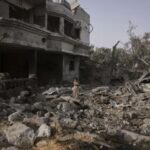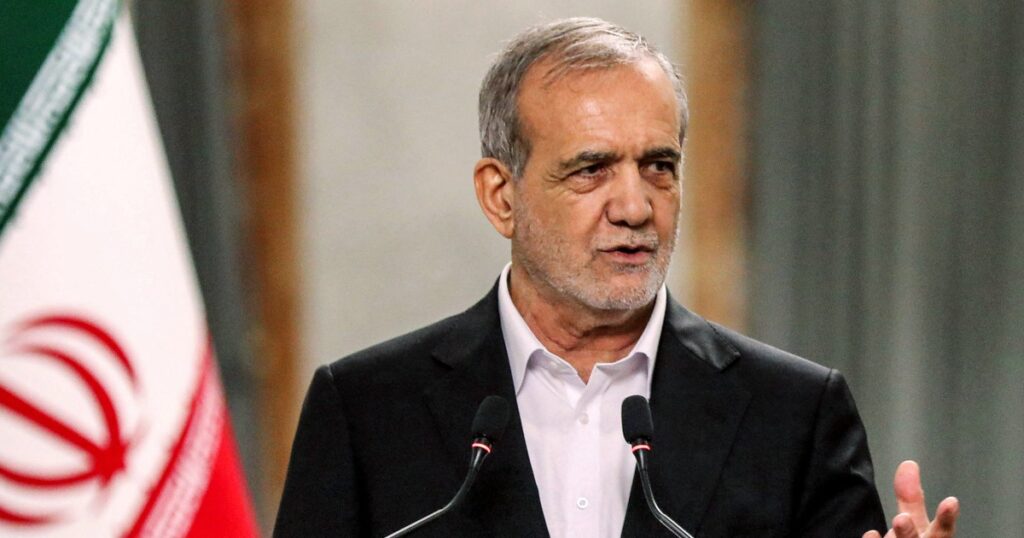DUBAI, United Arab Emirates — In a significant escalation of international tensions, Iran’s President Masoud Pezeshkian reportedly ordered the suspension of the country’s cooperation with the International Atomic Energy Agency (IAEA) on Wednesday. This decision follows recent American airstrikes targeting Iran’s critical nuclear facilities, as reported by state media.
The directive from President Pezeshkian aligns with a law recently passed by Iran’s parliament, which had already received approval from a constitutional watchdog. The exact implications for the IAEA, the United Nations’ nuclear watchdog based in Vienna, remain unclear as the agency has not yet commented on the development.
Background and Context
The suspension order comes after the Iranian parliament’s legislative move to halt cooperation with the IAEA, a decision that was to be overseen by Iran’s Supreme National Security Council. Although the council has not publicly commented, Pezeshkian’s role as its head suggests the bill’s implementation is imminent. However, under Iran’s theocratic government, the council retains discretion over how to enforce the bill, which could mean not all parliamentary demands will be fulfilled.
Iran’s nuclear ambitions have been a focal point of international diplomacy since the 2015 nuclear deal with world powers. Negotiated under former U.S. President Barack Obama, the agreement allowed Iran to enrich uranium up to 3.67%, sufficient for nuclear power but well below the 90% required for weapons-grade material. The deal also significantly reduced Iran’s uranium stockpile and limited its centrifuge use, with the IAEA tasked with monitoring compliance.
Historical Tensions and Recent Developments
The situation deteriorated in 2018 when then U.S. President Donald Trump withdrew from the accord, criticizing it for not addressing Iran’s missile program or its support for militant groups in the Middle East. This withdrawal set off a series of tensions, including maritime and terrestrial attacks, and led Iran to enrich uranium up to 60%, a technical step away from weapons-grade levels. Iran maintains that its nuclear program is for peaceful purposes, a claim met with skepticism by the IAEA and Western intelligence agencies, which assert that Tehran had an organized weapons program until 2003.
“Iran had been enriching up to 60%, a short, technical step away from weapons-grade levels. It also has enough of a stockpile to build multiple nuclear bombs, should it choose to do so.”
Implications and Expert Opinions
The suspension of cooperation with the IAEA could have significant implications for global nuclear non-proliferation efforts. Experts suggest that without the oversight of the IAEA, the international community may find it challenging to verify the peaceful nature of Iran’s nuclear activities.
Dr. Ali Rezaian, a nuclear policy expert, noted, “This move by Iran could further isolate the country diplomatically and economically. It also raises the stakes for potential military confrontations in the region.”
Meanwhile, regional powers and global stakeholders are closely monitoring the situation. The European Union, a key player in the original nuclear deal, has expressed concern over Iran’s latest actions and urged for diplomatic engagement to de-escalate tensions.
Looking Ahead
The international community now faces the challenge of responding to Iran’s suspension of cooperation. Diplomatic efforts may intensify as world powers seek to bring Iran back into compliance with international agreements. The potential for renewed negotiations or further sanctions looms large, with the outcome likely to shape the geopolitical landscape in the Middle East.
As the situation develops, the role of the IAEA and other international bodies will be crucial in mediating and resolving the nuclear standoff. The coming weeks and months will be critical in determining the path forward for Iran’s nuclear program and its relations with the global community.
 Hamas Open to Ceasefire with Israel Amid Demands for War’s End in Gaza
Hamas Open to Ceasefire with Israel Amid Demands for War’s End in Gaza Inside Trump’s Unconventional West Wing: A Hub of Activity and Influence
Inside Trump’s Unconventional West Wing: A Hub of Activity and Influence Bryan Kohberger’s Expected Plea Deal in Idaho Student Killings Raises Unanswered Questions
Bryan Kohberger’s Expected Plea Deal in Idaho Student Killings Raises Unanswered Questions Iran Halts Cooperation with IAEA Amid Nuclear Facility Security Concerns
Iran Halts Cooperation with IAEA Amid Nuclear Facility Security Concerns American Men’s Wimbledon Drought: A 25-Year Quest for Glory
American Men’s Wimbledon Drought: A 25-Year Quest for Glory